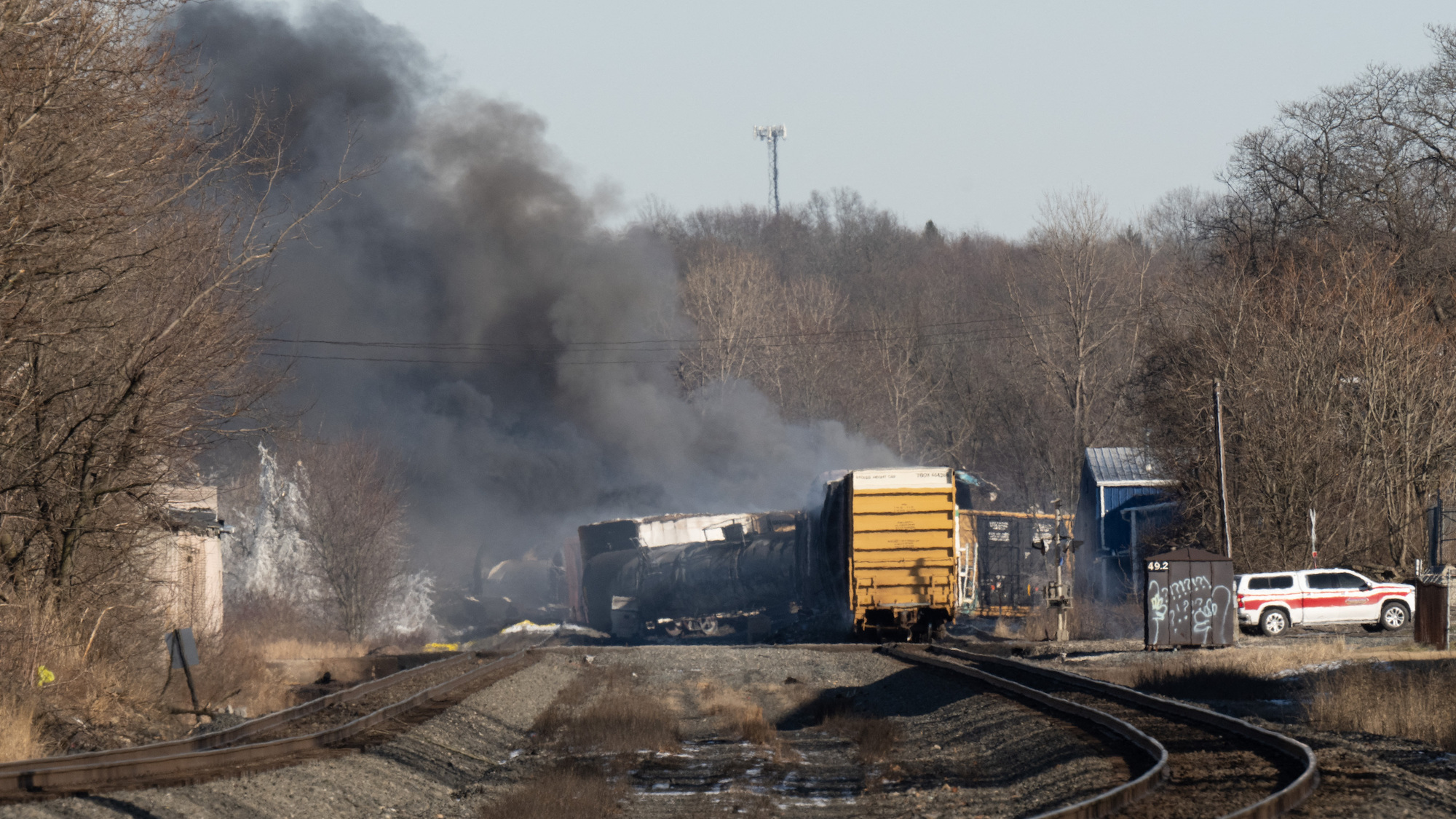

On February 3, a Norfolk Southern freight train carrying toxic and hazardous materials derailed in East Palestine, Ohio. Although no injuries and fatalities have yet been reported, the crisis prompted evacuation requests for the nearly 5,000 residents of the East Palestine area and renewed widespread criticism of the American rail industry’s questionable safety regulations, strained workforce, and crumbling infrastructure.
Early reports place the blame on a broken axle, although further details appear to complicate the 50-car derailment. After the axle malfunctioned, onboard engineers pulled an emergency brake, but the brake also failed. Now, critics have shown a lengthy paper trail indicating Norfolk Southern’s persistent lobbying against safety reforms, alongside resistance to updating its trains’ brakes.
[Related: BP made $28 billion last year, and now it’s backtracking on its climate goals.]
Because of the cascading failures, emergency responders faced a potentially deadly situation. Toxic chemicals including vinyl chloride gas—used in making a variety of commonplace plastic products such as PVC piping and credit cards—filled 10 of the derailed freight cars and could have exploded, according to authorities. This could have sent shrapnel flying as far as a mile from the site. Officials ultimately decided on a controlled burn of the gas by funneling the vinyl chloride into a nearby trench that was then ignited, sending phosgene and hydrogen chloride to disperse in the air. Phosgene gas, which causes vomiting and respiratory issues, was used in chemical warfare during World War I and has been linked to emphysema and chronic bronchitis. On Sunday, it was confirmed that three additional dangerous chemicals were released following the crash, including the carcinogen ethylhexyl acrylate.
Although government officials cleared residents to return home, many are wary to do so. Some have even filed a federal lawsuit which would compel Norfolk Southern to set up routine health screenings for anyone living within a 30-mile radius of the crash.
[Related: Fossil fuels are causing a buildup of human health problems.]
David Masur, Executive Director of the PennEnvironment Research & Policy Center, called the East Palestine incident “a stark reminder of the threat posed to our cities, towns and communities from trains carrying explosive materials across Pennsylvania and the United States every day.” Masur and others are calling upon state and federal officials to instate greater inspection levels and oversight within the rail industry. “Ideally, freight companies should have to re-route trains carrying hazardous material away from populated areas,” says Masur, adding that, “if they continue driving current routes, the public and first responders have a right to know about trains coming through their communities.”
Last week, Norfolk Southern announced it would collectively pay 5,000 area residents $25,000, or roughly $5 per person. The railway company generated $12.7 billion in operating revenue during 2022—its most profitable year to date.